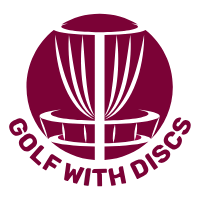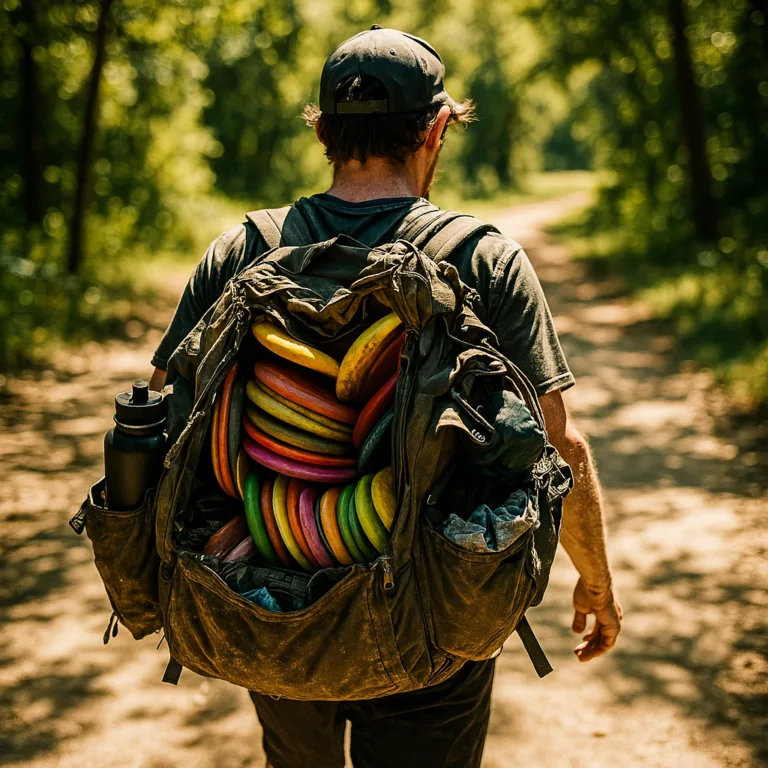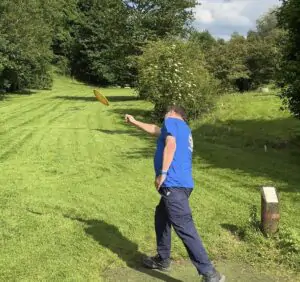Most players think the secret to disc golf brilliance lies in a sexier throw or shinier plastic. But what if the real secret weapon isn’t in your form or your wallet—but in your bag? More specifically, in having less of it.
Picture this: you step up to the tee with a bag that rattles like a toolbox in a tumble dryer. Eighteen discs. Each one whispering a different line, a different fate. And there you are, paralysed by the illusion of choice. This, my friend, is not strategy. It’s a psychological ambush.
This is why I love a Trilogy disc golf tournament. You get three discs. That’s it. Three tools. Three decisions. Three chances to stop overthinking and start committing. The simplicity is liberating—less like rummaging through a filing cabinet mid-round, more like reaching for a well-worn fountain pen you know by touch alone.
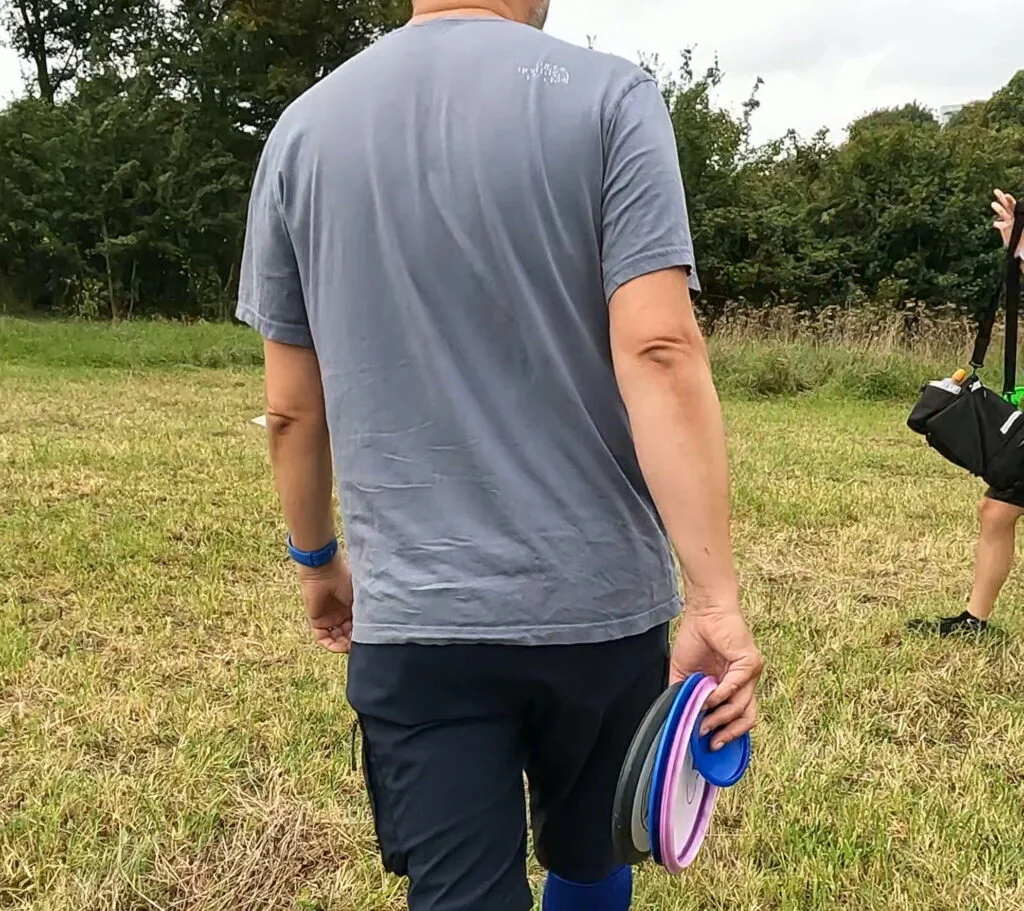
Fewer Discs, Better Scores (and Sanity)
Behavioural economists call it choice architecture. The idea that how you structure your decisions affects what you end up choosing. In disc golf, it’s not just about which discs are in your bag—it’s about how many voices are in your head when you’re trying to throw.
Carry twenty discs and you invite twenty mental debates. Carry five, and you’re playing with clarity. You’re not picking favourites—you’re committing to relationships. Every throw becomes a confident decision rather than a hesitant guess.
IDEO once simplified hospital checklists and saw a dramatic drop in surgical errors. It turns out fewer steps done right beat many steps done wrong. Your disc selection works the same way. Simplify, and you remove mental static. You get precision, not paralysis.
The Psychology of Commitment
There’s another principle at play here: commitment bias. Once you choose your discs, you become emotionally (and stubbornly) invested in making them work. This isn’t a flaw. It’s a glorious behavioural hack. You start learning each disc’s full range. You stop blaming bad throws on bad tools.
It’s the same logic behind Steve Jobs wearing the same outfit daily. Fewer trivial decisions meant more brainpower for the big stuff. In disc golf, carrying fewer discs means you’re no longer thinking about what to throw—you’re thinking about how to throw it best.
Why Kids These Days Carry Too Much Plastic
Let me be the curmudgeon for a moment. Young players today lug around bags big enough to move house with. And for what? The extra weight? The inevitable back pain? The luxury of confusion?
The more discs they carry, the less they seem to know any of them well. What’s sold as versatility is often just vanity. I’d argue most kids would shave strokes off their scorecards by halving the weight on their shoulders—both physically and mentally.
Discs aren’t Pokémon. You don’t need to collect them all. You need to know a few of them inside out. Confidence, after all, rarely comes from variety. It comes from familiarity.
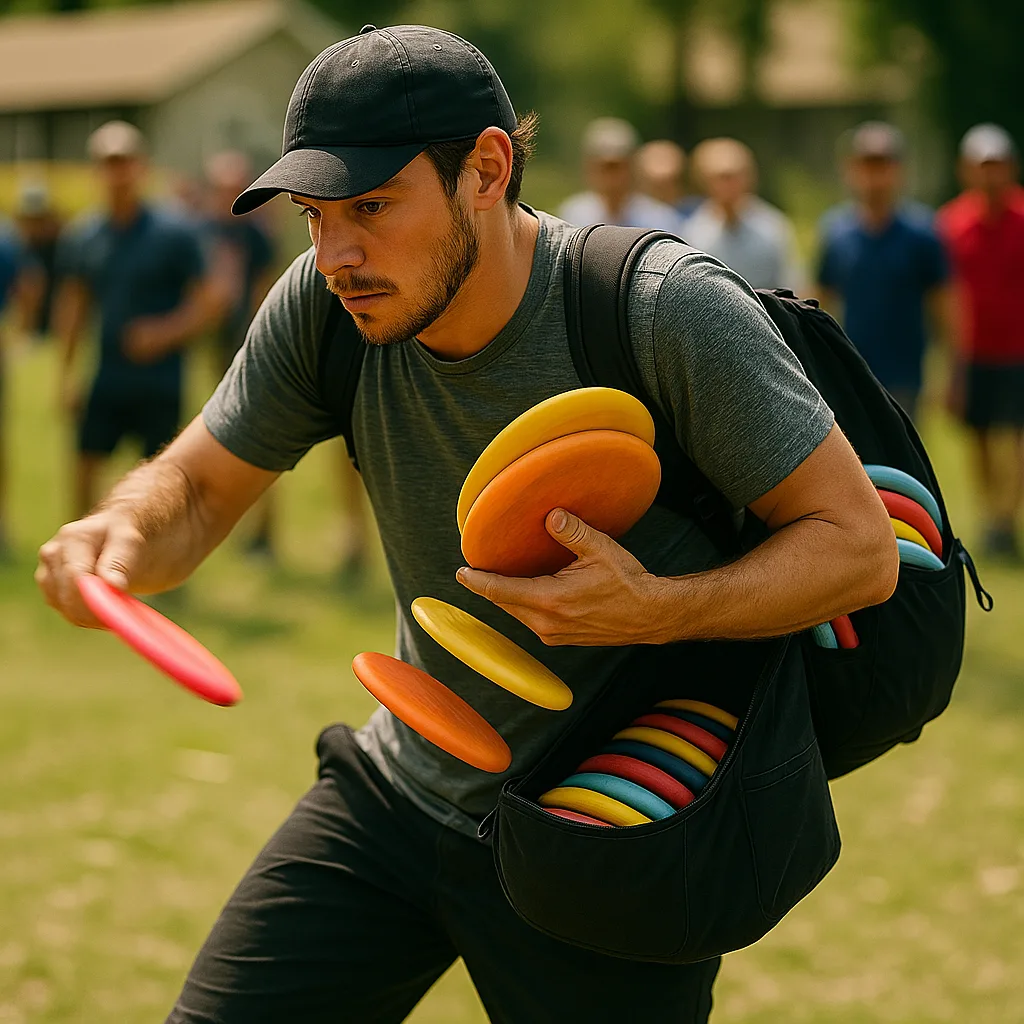
The Minimalist Disc Golf Challenge
Here’s something mildly radical: try playing for one month with just three or four discs. Pick wisely. A stable putter, a trustworthy midrange, and a driver you could throw blindfolded. Track your scores.
Then ask yourself—did your form improve? Or did your mind finally get out of its own way?
Minimalism in disc golf isn’t holding you back. It’s a fast-track to mastery. It’s like learning to cook with salt, olive oil, and garlic. Sure, you could bring the spice rack—but why complicate brilliance?
The Power of Less in Everyday Life
This minimalist magic extends well beyond disc golf. Consider Roger Federer. The man could afford a different racquet for every set. Instead, he uses identical frames, strung the same way, every time. He doesn’t just know how his gear feels—he feels how it thinks.
Or take chefs. They’ll tell you: two or three quality knives trump a drawer full of gadgets. Repetition breeds intuition. They don’t reach—they react. The tools vanish. What’s left is flow.
Barry Schwartz coined the term “Paradox of Choice,” and it explains all this neatly. More options don’t liberate us—they exhaust us. When we try to choose from everything, we often choose nothing.
Limiting your disc choices means deepening your relationship with the ones you keep. You develop sixth-sense knowledge: how your putter fades in crosswind, how your midrange flips when powered up, how your driver skips on wet ground.
Simplicity isn’t basic. It’s behavioural brilliance. It’s shaving strokes with your brain, not just your arm.
So next time you reach for that ninth driver or experimental overstable something, stop. Think Federer. Think garlic. Then take something out of your bag. Your back—and your scorecard—will thank you.
Quick Disc Golf Tips and Common Questions
A reliable putter, a versatile midrange, and a stable driver. That trio can handle 90% of the throws you’ll face.
Yes. Fewer discs reduce hesitation, improve focus, and help you build deeper skill with the tools you use most.
It’s the mental weariness from too many choices. Less energy for disc decisions means more energy for executing great throws.
Very. They encourage players to rely on technique, not tool variety, making them ideal for learning.
Light enough to carry comfortably for 18 holes. Your bag should help your game, not hurt your back.
